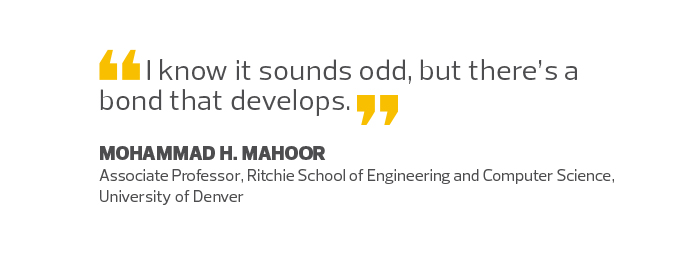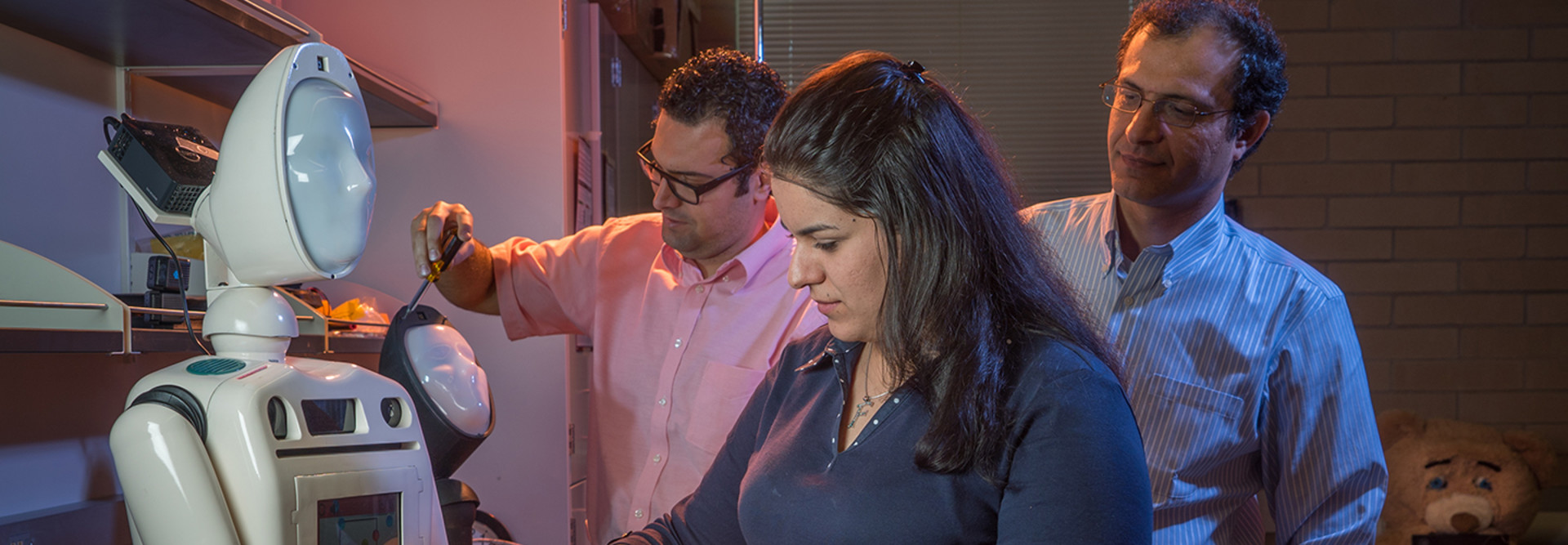How Artificial Intelligence Impacts Senior Care
Artificial intelligence has made steady strides as a useful tool for healthcare professionals, and some estimate its market in the industry will exceed $5.5 billion by 2022. But what kind of promise does the technology hold for the senior care industry?
Researchers continue to demonstrate AI’s potential, although challenges remain to widespread adoption.
A companion robot developed at the University of Denver, for example, is designed to address the projected shortage of caregivers for seniors with dementia, Alzheimer’s disease and depression.
The AI-programmed robot holds conversations with patients, reminds them to take their medications and leads them in light physical activity and cognitive games. Using a rear-projection design, the robot uses speech detection to respond with appropriate facial expressions to individuals.
What’s more, through a tablet on its chest, it can be used in reminiscence therapy by projecting family photos and stories.
“I think social robotics can make a huge impact on senior care,” says Mohammad H. Mahoor, associate professor in the Ritchie School of Engineering and Computer Science at the University of Denver, who leads the project.
SIGN UP: Get more news from the HealthTech newsletter in your inbox every two weeks
Residents Develop a Bond with Robotics
Pilots in a Denver-area senior facility have found general benefits from using the robot, Mahoor says. Researchers plan to take blood samples of individual users to determine if the robot affects biomarkers of Alzheimer’s disease.
Patient acceptance has not been a problem. One 86-year-old man even named the robot after his late wife, Mahoor says.
“I know it sounds odd, but there’s a bond that develops,” he says. “The robot has a sense of humor. It might be sassy. Sometimes it comes up with answers that make you laugh.”

Meanwhile, research by an interdisciplinary team at the University of Missouri’s Center for Eldercare and Rehabilitation Technology focuses on using sensors, pattern recognition and analytics to help seniors stay active and independent.
Using data from residents of TigerPlace, independent apartments equipped with sensors and RN care coordination, the center has conducted multiple projects that use both supervised and unsupervised machine learning and analytics to predict falls, detect the onset of health problems (such as urinary tract infection, low blood sugar and depression) and assess physical function.
AI Offers Senior Caregivers Decision Support
TigerPlace residents using the technology were able to live independently for 1.7 years longer than those without it, saving about $30,000 over the cost of a nursing home, according to the university’s research.
“What we’ve done so far is basically a clinical decision support system,” says Dr. Marjorie Skubic, the center’s director and a professor in the engineering and computer science departments. “We rely heavily on the clinician to receive the alerts and understand what to do about them, so it does require some expertise and training.”
The next step, Skubic says, is for AI to provide more guidance to facility staff as to what needs to be done and what might develop from particular pattern changes, bringing in more information from electronic health records to provide context.
“You might interpret data differently for a person who has heart disease, depression or Parkinson’s disease,” she says.
Skubic believes AI can also be useful in population health experiments based on aggregated sensor data.
“There’s a business case to be made about how these systems can help senior housing facilities,” she says.









